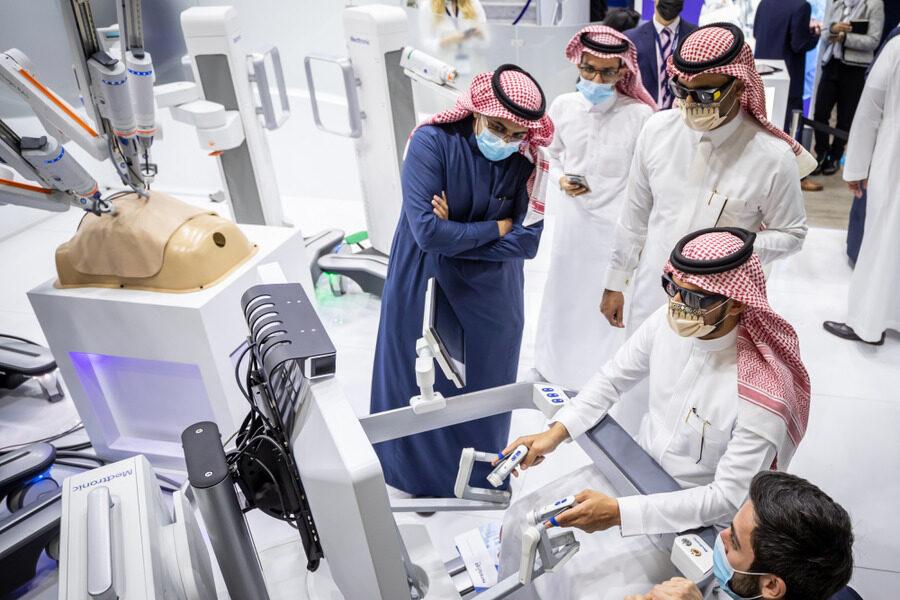
ABU DHABI (Enmaeya News) — The healthcare sector in the Gulf Cooperation Council (GCC) region is poised for significant growth, with Alpen Capital's latest industry report projecting the market to reach $135 billion by 2027, expanding at a compound annual growth rate of 6.7%.
This surge is driven by strategic investments in world-class medical infrastructure, government-led initiatives, and technological advancements. Saudi Arabia and the United Arab Emirates (UAE) are leading the charge with ambitious projects including smart hospitals and specialized care centers, aligning with broader economic diversification strategies like Saudi Vision 2030 and the UAE's healthcare transformation programs.
Population growth, rising life expectancy, and an increasing prevalence of chronic diseases continue to fuel demand for enhanced medical services. In response, governments across the GCC are boosting healthcare budgets and expanding infrastructure to meet these needs.
Digital Transformation Shaping the Sector
Digital transformation is emerging as a key pillar of the region's healthcare evolution. The rapid adoption of telemedicine, AI-driven diagnostics, and blockchain-based health records has accelerated since 2020, catalyzed by the pandemic. Private healthcare providers are collaborating with health tech startups to build integrated digital ecosystems, while governments move to regulate and standardize digital health services.
This technological shift also aligns with the region's growing medical tourism industry. World-class specialty hospitals in the UAE and Saudi Arabia are increasingly attracting international patients seeking advanced treatment. The GCC medical tourism market is projected to grow from USD 367.41 million in 2024 to USD 889.97 million by 2032, according to Credence Research.
Workforce and Financing Challenges
Despite robust growth, the report identifies challenges that could impact long-term expansion. The region's reliance on expatriate medical professionals underscores the need for talent localization and enhanced medical education. To address this, governments are launching workforce development programs aimed at building local expertise.
Healthcare financing also remains a focal point, with health insurance mandates and public-private partnerships creating new opportunities for investment. These models are expected to bridge funding gaps and drive innovation in healthcare delivery.
Outlook: Consolidation and Global Standards
According to Alpen Capital, the coming years will likely see heightened mergers and acquisitions activity as regional players consolidate and global providers seek market entry. The pharmaceutical and medical equipment sectors are expected to expand alongside clinical services, supported by local manufacturing and logistics investments.
The report concludes that the GCC's healthcare investments are setting a global benchmark for emerging economies, demonstrating how strategic planning, technological integration, and public-private collaboration can rapidly elevate healthcare systems to international standards.






